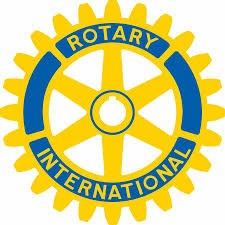A presentation about the Rotary Foundation was given to members of the Weyburn Rotary Club at their Zoom meeting on Thursday, as a charity that seeks “to do good in the world”.
Club member Bruce Kwochka provided the presentation, noting that the Foundation supports projects in six areas.
These areas include peace and conflict resolution; fighting disease; providing clean water; supporting mothers and their children; promoting education; and growing the local economy.
Kwochka noted that Rotary has trained around 1,500 peace fellows, who work with governments and international organizations to help resolve conflict situations and to provide mediators when they’re needed.
In the area of fighting disease, Rotary has been providing polio vaccines through the Polio Plus program, which has the goal of eradicating polio throughout the world, with supporting funds from the Bill Gates Foundation.
With an organization in place to provide these vaccines, Rotary has been approached about the possibility of providing COVID-19 vaccines once those become available.
“We’re getting the infrastructure set up in a lot of countries where previously there hadn’t been anything available, so if we do end up with a vaccine for COVID, we have a way of getting it out to countries where in the past it would’ve been impossible,” said Kwochka.
Providing clean water goes hand in hand with disease prevention, he said, with a program called WASH, an acronym that stands for water and sanitation and hygiene. Projects through this program builds facilities and teaches good hygiene practices.
Supporting mothers and their children helps mothers who do home deliveries of their babies, and provides care for them and any other assistance they need.
Rotary International also has a medical jeep available in locations where great distances exist for providing care and services to places that were not accessible before, he said.
Education is promoted by building schools and helping to provide literacy programs. Kwochka noted a study of adults in Detroit found that about half of the adults were functionally illiterate.
“That was a concern, and they’re in an area where Rotary was able to provide some much-needed resources,” said Kwochka.
In the category of helping local economies, Kwochka said Rotary will help provide skills training, such as to local farmers to show new techniques of farming to increase production, as well as micro-loans.
“This might be providing $100 so a person can buy a used sewing machine to do some tailoring from their house, which could be a second source of income, or even a first income source for some people,” he explained.
He pointed out that 92 per cent of funds donated to the Rotary Foundation go directly to supporting programs in the field, “which is a high percentage for most charitable organizations.”
In 2018, the most recent year when figures were available, the Foundation provided a total of $86.6 million for 1,300 grants, which included $35.5 million for preventing disease, and $18.7 million for helping to provide clean water.
“Those two go hand-in-hand. If you’ve got a sound, healthy environment, a lot of the other things can be aligned after that,” said Kwochka.
To give to the Rotary Foundation, or to find out more information about their work, go to www.rotary.org and click on the Rotary Foundation button.



